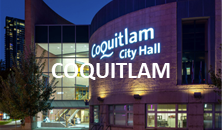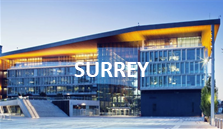British Columbia Guide: Population, Attractions & Industry
Introduction to British Columbia
British Columbia is the westernmost province of Canada, distinguished by its breathtaking natural landscapes, rich resources, and vibrant urban centers. Spanning over 944,000 square kilometers, it is bordered by the Pacific Ocean to the west and the Rocky Mountains to the east. The geography of British Columbia includes a vast array of natural resources such as forests, minerals, and fisheries, making it an economic powerhouse and a prime destination for outdoor enthusiasts.
The province has a temperate climate along the coastal regions, marked by mild, rainy winters and warm, dry summers, with colder climates and snowfall dominating the interior mountainous areas. The population, which has recently reached over 5.2 million, is on a steady incline as people are drawn to British Columbia’s high quality of life, excellent job prospects, and exceptional outdoor lifestyle. Vancouver, the largest city, leads British Columbia in population growth, along with other popular cities such as Victoria and Kelowna.
Residents and visitors alike appreciate British Columbia for its diverse economy, major industries, including forestry, technology, tourism, and film, and a unique blend of urban and natural environments. Major attractions, from Whistler’s ski slopes to the cultural sites in Vancouver, create a distinctive allure that keeps British Columbia among Canada’s top destinations for both travel and residency.
Tofino
On Vancouver Island, Tofino is known for its beaches, surfing, and whale watching, offering a relaxed, nature-focused getaway. Details here: www.tofino.ca
Major Industries in British Columbia
Forestry
The forestry industry is one of British Columbia’s oldest and largest sectors, deeply embedded in the province’s economy. Approximately 60% of the province is covered in forests, supporting a range of wood products, from lumber to paper. Forestry plays a critical role in job creation and export revenue, with sustainable practices being prioritized to preserve the province’s natural heritage.
Mining
Mining is another significant industry, with British Columbia known for its abundant natural resources, including coal, copper, and gold. Major mining operations provide economic stability, and cities such as Prince George and Kamloops are regional centers for mining. The industry also attracts global investments and continues to innovate with new technologies and sustainable practices.
Technology
The “British Columbia tech industry” has emerged as a crucial driver of growth, with Vancouver recognized as a global technology hub. This industry covers everything from software development to green technology, and Vancouver’s proximity to Silicon Valley makes it ideal for tech startups and international companies. The University of British Columbia, along with other top institutions, helps produce skilled graduates, further fueling the sector’s growth.
Film
British Columbia, and Vancouver specifically, is often referred to as “Hollywood North,” attracting numerous film and television productions. The province’s scenic settings, skilled workforce, and favorable tax incentives make it a premier filming location. The film industry contributes substantially to the economy and continues to grow as international studios and streaming services increase their presence.
Tourism
Tourism is one of British Columbia’s fastest-growing industries, with millions visiting each year to explore cities like Vancouver, Victoria, and Tofino. Outdoor enthusiasts are drawn to British Columbia’s extensive options for skiing, hiking, and water sports, while cultural tourists enjoy Vancouver’s museums and Victoria’s historic sites. This diversity in attractions makes tourism a consistent and valuable economic contributor.
Top Attractions and Tourist Destinations
Vancouver
Vancouver is one of Canada’s most vibrant and diverse cities. Known for its mix of urban sophistication and natural beauty, visitors can explore Stanley Park, Granville Island, and the Capilano Suspension Bridge Park. Vancouver also offers a rich arts scene, and top-tier dining and is a major gateway to outdoor activities. For more information, visit www.vancouver.ca.
Victoria
As the capital of British Columbia, Victoria is famous for its historic charm, scenic harbor, and iconic Butchart Gardens. Located on Vancouver Island, this city blends history with a relaxed coastal vibe. Tourists can explore the Royal BC Museum and enjoy tea at the Fairmont Empress Hotel. Visit www.tourismvictoria.com for more.
Whistler
Whistler is world-renowned for its skiing, snowboarding, and year-round outdoor activities. Whistler Blackcomb, one of North America’s largest ski resorts, offers stunning mountain views and a charming village. Whistler is also a popular summer destination for hiking and mountain biking. Check out www.whistler.com.
Kelowna
Located in the heart of British Columbia’s wine country, Kelowna is known for its wineries, vineyards, and beautiful Okanagan Lake. This city has a burgeoning arts scene, fine dining, and outdoor activities. Visitors can find more at www.tourismkelowna.com.
Tofino
Tofino, on Vancouver Island’s west coast, is a haven for surfers, nature lovers, and anyone looking for a quiet getaway. Known for its beautiful beaches, Tofino also offers whale-watching, hot springs, and hiking in Pacific Rim National Park. Visit www.tourismtofino.com.
Prince Rupert
A coastal city located in northern British Columbia, Prince Rupert is a gateway to some of the most pristine wilderness in Canada. Known for its fishing, whale-watching, and indigenous culture, it’s a unique destination for those seeking rugged adventure. Learn more at www.visitprincerupert.com.
Top Attractions and Tourist Destinations
- Vancouver – As the largest city in British Columbia, Vancouver offers a range of attractions, including Stanley Park, Granville Island, and the Museum of Anthropology. For more information, visit www.vancouver.ca.
- Victoria – The capital city located on Vancouver Island, known for its British-inspired architecture, Butchart Gardens, and the BC Parliament Buildings. Plan your trip at www.tourismvictoria.com.
- Whistler – Renowned for its ski resorts and outdoor activities, Whistler draws tourists year-round. For detailed visitor information, check out www.whistler.com.
- Tofino – Located on Vancouver Island, Tofino offers some of the best surfing, beaches, and natural landscapes in the province. For travel details, visit www.tofino.ca.
- Kelowna – Situated in the Okanagan Valley, Kelowna is famous for its wineries, lakes, and outdoor activities. For more information, go to www.tourismkelowna.com.
- Canadian Rockies – British Columbia’s Rockies provide an exceptional outdoor experience with hiking, hot springs, and stunning scenery. More information is available at www.banfflakelouise.com.
- Capilano Suspension Bridge Park – One of British Columbia’s most popular attractions, this suspension bridge offers breathtaking views. Plan your visit at www.capbridge.com.
- Prince Rupert – A coastal city known for its port and cultural history, ideal for marine excursions. Learn more at www.visitprincerupert.com.
- Kootenay National Park – Offers hot springs, beautiful trails, and incredible mountain landscapes. For details, visit www.pc.gc.ca/en/pn-np/bc/kootenay.
Top Cities in British Columbia
Vancouver
As British Columbia’s largest city, Vancouver combines urban life with access to nature. It’s known for its diverse culture, robust economy, and outdoor amenities like Stanley Park. Vancouver is home to prestigious institutions like the University of British Columbia and hosts a thriving tech industry, making it ideal for both work and leisure.
Surrey
Surrey is one of the fastest-growing cities in British Columbia, thanks to its affordability, suburban charm, and close proximity to Vancouver. Known for its multicultural population, it features green spaces, family-friendly neighborhoods, and easy access to major highways.
Burnaby
Burnaby is an economic and cultural hub within Greater Vancouver. With popular destinations such as Metrotown Shopping Centre and Deer Lake Park, Burnaby provides a balance of commercial and recreational spaces. It’s known for its multicultural community and vibrant arts scene.
Richmond
Richmond, near Vancouver International Airport, has a distinct Asian influence, visible in its cuisine and annual events. The city’s waterfront location and attractions like the Richmond Night Market make it popular with both residents and tourists.
Kelowna
Kelowna in the Okanagan Valley is known for its wine industry, lake views, and outdoor activities. With its warm climate and rapidly growing economy, Kelowna attracts families, young professionals, and retirees alike.
Langley
Langley offers a blend of rural charm and urban amenities. Known for its equestrian facilities, wineries, and farms, Langley is ideal for those seeking a quieter life while remaining close to Vancouver.
Victoria
Victoria, on Vancouver Island, is the capital of British Columbia. Known for its British-style architecture, mild climate, and vibrant cultural scene, Victoria appeals to those looking for a slower-paced, community-focused lifestyle.
Kamloops
Kamloops is celebrated for its outdoor activities, including skiing, hiking, and biking, which make it the “Tournament Capital of Canada.” The semi-arid climate provides a unique environment compared to other cities in the province.
Nanaimo
Located on Vancouver Island, Nanaimo offers coastal living with a rich historical background. Known for its waterfront parks and easy access to recreational activities, it serves as a gateway to other island attractions.
Prince George
As the largest city in northern British Columbia, Prince George plays a significant role in the region’s economy, especially in the forestry sector. The city offers an active lifestyle with parks, trails, and a variety of cultural events.
FAQ Section
What is British Columbia known for?
British Columbia is known for its diverse landscapes, including mountains, forests, and coastline, as well as its vibrant cities and multicultural communities. Popular activities range from skiing and hiking to experiencing cultural festivals.
Is British Columbia a good place to live?
Yes, British Columbia is consistently rated as one of the best places to live in Canada due to its high quality of life, job opportunities, and access to nature. With robust healthcare and education systems, it’s a popular choice for both young professionals and retirees.
What are the top tourist attractions in British Columbia?
Top attractions include Stanley Park in Vancouver, the Butchart Gardens in Victoria, the ski slopes of Whistler, and the Capilano Suspension Bridge. The province’s natural beauty is also a major draw for tourists worldwide.






